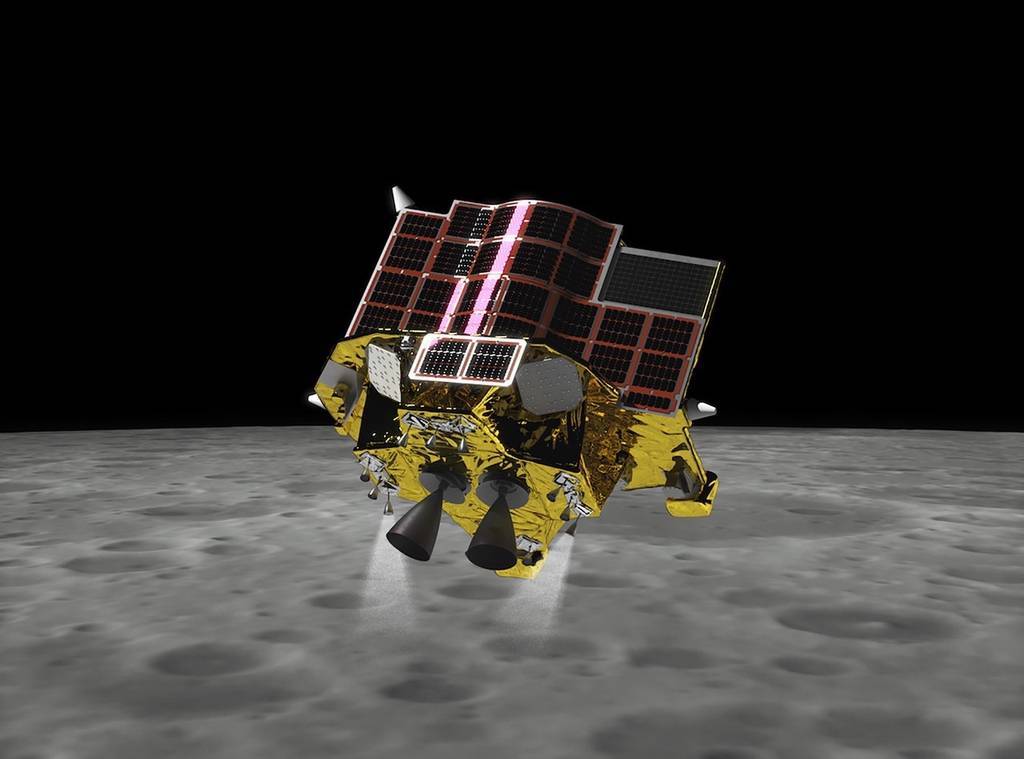蜂词
分题型分考点背单词 文
文 文
文·日本月球着陆器SLIM电池电量只剩12%,进入睡眠模式。SLIM的太阳能电池朝向西方,如果阳光从西边照射到月球表面,探测器就有可能产生电力。

日本月球着陆器SLIM。 IC 图
日本送上月球的着陆器电量只剩12%,它还能充上电吗?电池电量耗尽后,日本登月任务会缩短吗?沉浸在全球第五个实现月球软着陆国家喜悦之中的日本,正面临这些棘手难题。
日本标准时间1月20日,日本月球着陆器SLIM(Smart Lander for Investigating Moon,智能月球探测器)在月球表面软着陆并建立通信联系。但日本宇宙航空研究开发机构(JAXA)随后表示,探测器的太阳能电池不能发电。工程师将研究这一问题,并争分夺秒下载月球任务的数据和图像。
3天后,日本关闭了着陆器,电池电量还剩12%。
“电池电量为12%时,电池(按计划)断开了连接。”JAXA在周一表示,着陆器已断电,为未来可能的重启留出了足够电量。
“根据遥测数据,SLIM的太阳能电池朝向西方。” JAXA表示,“因此,如果阳光开始从西边照射到月球表面,就有可能产生电力,我们正在为恢复做准备。”
但JAXA并没有具体说明太阳何时处于有利位置,才能为能源匮乏的着陆器提供电力。
JAXA空间与航天科学研究所所长Hitoshi Kuninaka表示,由于月球昼夜漫长,如果失去电力,探测器将进入“睡眠模式”。
月球上的一天大约有29.5个地球日,在月球上,每两周是炎热的阳光和寒冷的黑暗。所以如果探测器能在月球零下200摄氏度的夜晚存活下来,那么两周后它可能再次被唤醒。“如果太阳能电池上有光,那么接收设备将再次自动开始工作,然后我们可以从地球发送命令来唤醒探测器系统。”
但这也意味着,SLIM着陆器必须经受住月球的严寒。而Kuninaka却表示,SLIM最初的设计目的不是克服黑夜。“所以我们只是一厢情愿地认为SLIM能够挺过夜晚。”
SLIM于日本标准时间1月20日在月球赤道以南的Shioli陨石坑附近的目标区域成功软着陆,此次任务的目标之一是在选定着陆点的100米范围内着陆,JAXA还不知道SLIM是否完成了这项工作。目前JAXA将重点转向保护着陆器的数据。着陆器在电池电量耗尽之前向地球发送了大量信息和图像。“我们目前正在进行详细分析,并欣慰地看到我们获得了大量数据。”
JAXA已经下载了探测器“在着陆下降和月球表面获得的技术和图像数据”, 下降数据尤其重要,因为SLIM装载了空间数据和软件,以帮助它选择最佳着陆点。JAXA重视这种能力,因为能够检测和避免危险的探测器才有更高的成功机会。
· The Japanese lunar lander SLIM has only 12% battery charge and is in sleep mode. SLIM's solar cells face west, and if sunlight hits the moon's surface from the west, the probe could potentially generate electricity.
The Japanese lunar lander SLIM. IC drawing
Japan's lander on the moon has only 12% of its battery left. Can it charge? Will Japan's moon mission be cut short after the battery runs out? Japan, basking in the joy of being the fifth country in the world to achieve a soft landing on the moon, is facing these difficult questions.
On January 20, Japan standard Time, the Japanese lunar Lander SLIM (Smart Lander for Investigating Moon) soft-landed on the lunar surface and established communications. But the Japan Aerospace Exploration agency (JAXA) later said the probe's solar cells could not generate electricity. Engineers will study the problem and race against the clock to download data and images from the lunar mission.
Three days later, Japan shut down the lander with 12 percent of its battery power left.
"When the battery was at 12%, the battery disconnected (as planned)." JAXA said on Monday that the lander had lost power, leaving enough power for a possible future restart.
"According to telemetry data, SLIM's solar cells are facing west." "Therefore, if sunlight starts to hit the lunar surface from the west, it is possible to generate electricity, and we are preparing for restoration," JAXA said.
But JAXA did not specify when the sun would be in a favorable position to provide power for the energy-starved lander.
Hitoshi Kuninaka, director of JAXA's Institute of Space and Aerospace Science, said that because of the moon's long day and night, the probe would go into "sleep mode" if it lost power.
A day on the moon is about 29.5 Earth days, and on the moon every two weeks is hot sunshine and cold darkness. So if the probe can survive the moon's -200C night, it could be woken up again in two weeks. "If there is light on the solar cell, then the receiving device will automatically start working again, and then we can send commands from Earth to wake up the probe system."
But that also means the SLIM lander will have to survive the lunar cold. SLIM, however, was not originally designed to overcome darkness, Kuninaka said. "So we were just hoping that SLIM would make it through the night."
SLIM made a successful soft landing in the target area near the Shioli crater, south of the moon's equator, on January 20, Japan Standard Time, and one of the mission's goals was to land within 100 meters of the selected landing site, which JAXA does not yet know if SLIM completed. JAXA is now turning its focus to protecting the lander's data. The lander sent a flood of information and images to Earth before its batteries ran out of power. "We are currently doing a detailed analysis and are pleased to see that we have a lot of data."
JAXA has downloaded the probe's "technical and image data acquired during the landing descent and on the lunar surface," and the descent data is particularly important because SLIM is loaded with space data and software to help it choose the best landing site. JAXA values this capability because probes that can detect and avoid hazards have a higher chance of success.
重点词汇
着陆器 lander ; InSight lander
太阳能电池 solar cell ; solar battery
西边 west
有可能 be likely to ; be on the cards
耗尽 exhaust ; use up ; deplete ; exhaustion ; run out
登月 Landing on the moon ; moonfall
软着陆 soft landing ; soft-land
日本标准时间 Japan Standard Time ; JST
月球探测器 lunar probe ; moonshot ; lunar prospector
宇宙航空研究开发机构 JAXA ; Japan Aerospace Exploration Agency ; Japanese Aero
句子成分分析:
JAXA said [[on Monday]] | that the lander had lost power, leaving enough power for a possible future restart.
句子语法结构详解:
(said 为 say 的过去式。lost 为 lose 的过去分词。)
* said 为谓语,采用一般过去时。
* on Monday 为介词短语作状语,被移位到宾语从句之前。
* that 为连词,引导宾语从句。
* lost 为谓语,采用过去完成时。
* leaving 为现在分词,作状语。
* had 为助动词。the 为定冠词。a 为不定冠词。
句子相关词汇解释:
Vocabulary:
say [sei] | vt. | 1) 说,讲,告诉 2) 比方说,假设 |
Monday ['mʌndi] | n. | 星期一 |
lose [lu:z] | vt. | 1) 失去,损失,丧失 2) 丢失,遗失 |
power ['pauә] | n. | 1) 力,力量,能量 2) 控制力,影响力,操纵力 |
leave [li:v] | vt. | 1) 离开 2) 忘了带,丟下 3) 使留下, 使产生 |
enough [i'nʌf] | a. | 足够的,充足的 |
possible ['pɔsәbl] | a. | 1) 可能,能做到(或取得) 2) 可能存在(或发生)的 |
future ['fju:tʃә] | a. | 将来的,未来的,将来发生的 |
句子成分分析:
HitoshiKuninaka, <director (of JAXA's Institute (of Space) and Aerospace Science)>, said | that [because of the moon's long]
[day and night],the probe would go into "sleep mode" || if it lost power.
句子语法结构详解:
(said 为 say 的过去式。lost 为 lose 的过去式。)
* director of JAXA's Institute of Space and Aerospace Science 为同位语
* said 为谓语,采用一般过去时。
* that 为连词,引导宾语从句。
* long 为形容词名词化
* go 为谓语,采用虚拟语气。
* if 为连词,引导条件状语从句。
* lost 为谓语,采用虚拟语气。
* would 为情态动词。JAXA's, moon's 为名词所有格。the 为定冠词。
句子相关词汇解释:
Phrase:
because of | 由于;因为 |
day and night | 日夜,昼夜,夜以继日 |
1) 进入 2) 调查, 仔细检查 3) 参加, 加入, 从事 4) (交通工具)猛烈地撞到(某物) |
Vocabulary:
director [di'rektә] | n. | 1) 董事,理事,经理 2) 主管,主任,负责人 3) 电影,戏剧导演 |
institute ['institju:t] | n. | (教育、专业等)机构,机构建筑 |
space [speis] | n. | 1) 空间, 空地 2) 太空, 外层空间 3) 空, 空隙 |
and [ænd] | conj. | 1) 和, 与, 同, 并 2) 然后,接着 |
aerospace ['єәrәuspeis] | n. | 1) 航空航天技术 2) 航天与航空空间,宇宙空间 |
science ['saiәns] | n. | 1) 科学 2) 理科 |
say [sei] | vt. | 1) 说,讲,告诉 2) 比方说,假设 |
moon [mu:n] | n. | 1) 月亮,月相 2) (通常作 the moon)(also the Moon)月球 |
long [lɔŋ] | a. | 1) (距离)长的 2) (时间)长久的 |
probe [prәub] | n. | 1) 探测仪,传感器,取样器 2) (尤用于报章)探究,详尽调查 |
sleep [sli:p] | n. | 1) 睡觉,睡眠 2) 一觉,睡眠时间 |
mode [mәud] | n. | 1) 方式,风格,样式 2) (设备的)模式,工作状态 |
if [if] | conj. | 1) 如果, 倘若 2) 是否 |
lose [lu:z] | vt. | 1) 失去,损失,丧失 2) 丢失,遗失 |
power ['pauә] | n. | 1) 力,力量,能量 2) 控制力,影响力,操纵力 |

以上是蜂词为您整理编写的文章《登月大年|日本首次登月后着陆器电量剩12%,断电等待阳光从西边照来》的全部内容。蜂词是国内权威分题型分考点背诵中高考/四六级考研/专升本/出国单词的专业单词软件。扫描如下小程序码,进入蜂词官方小程序获取更多英语相关资料! 【关键词:高考单词;高考英语;高中单词;高中英语;单词app;单词软件;记单词app;记单词软件;背单词软件;背单词app;英语单词;四六级单词;四六级英语;四六级单词app;四六级单词软件;考研单词app;考研单词软件;核心单词;高考冲刺复习;高考英语教材;高考英语真题;四六级真题;四六级试题;考研真题;考研英语单词;考研英语真题】





